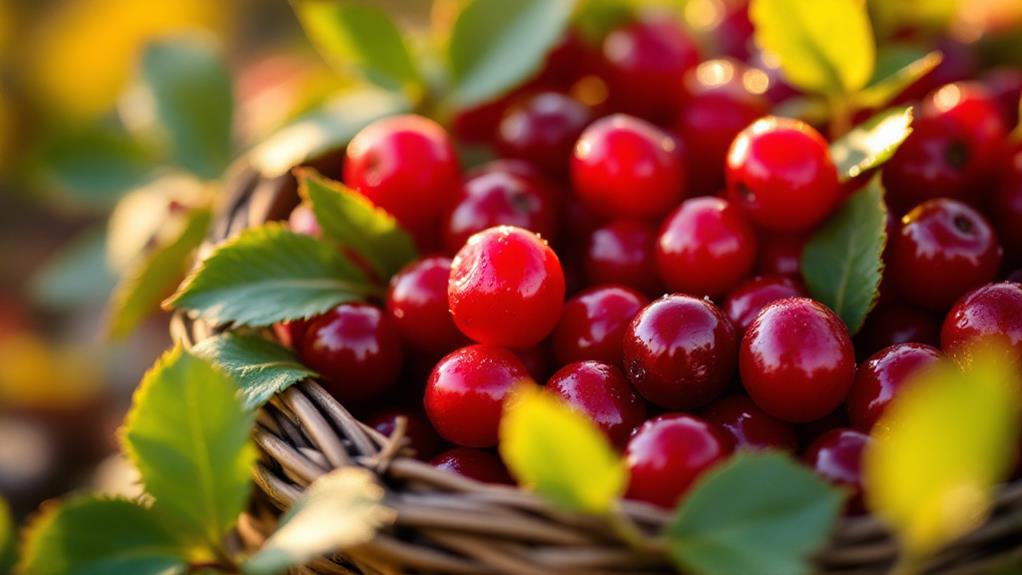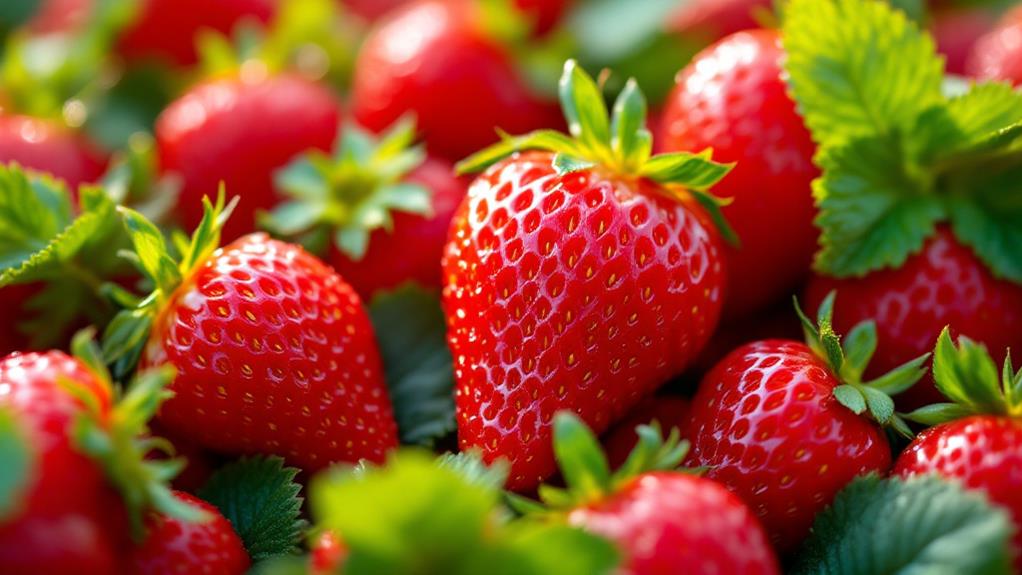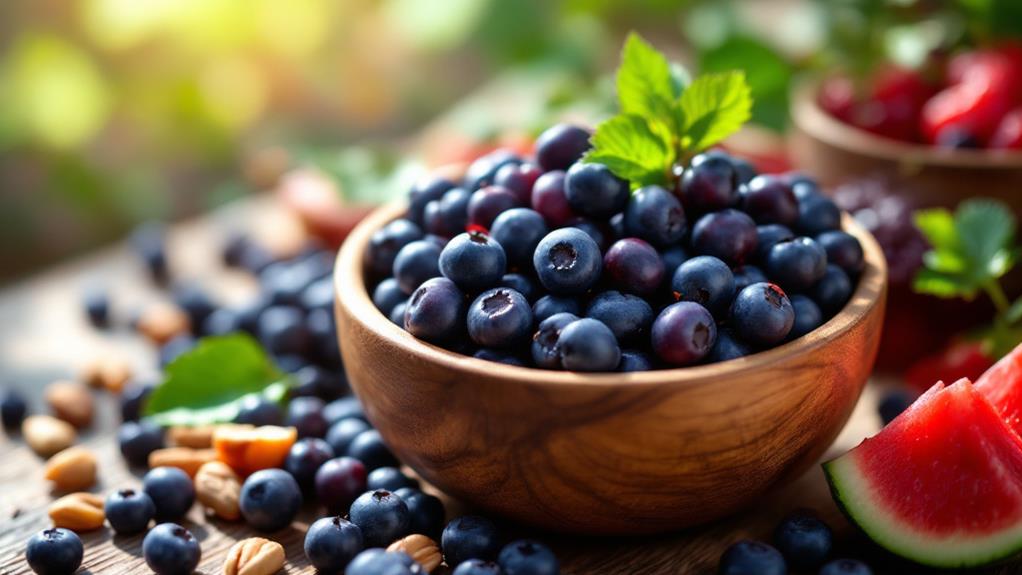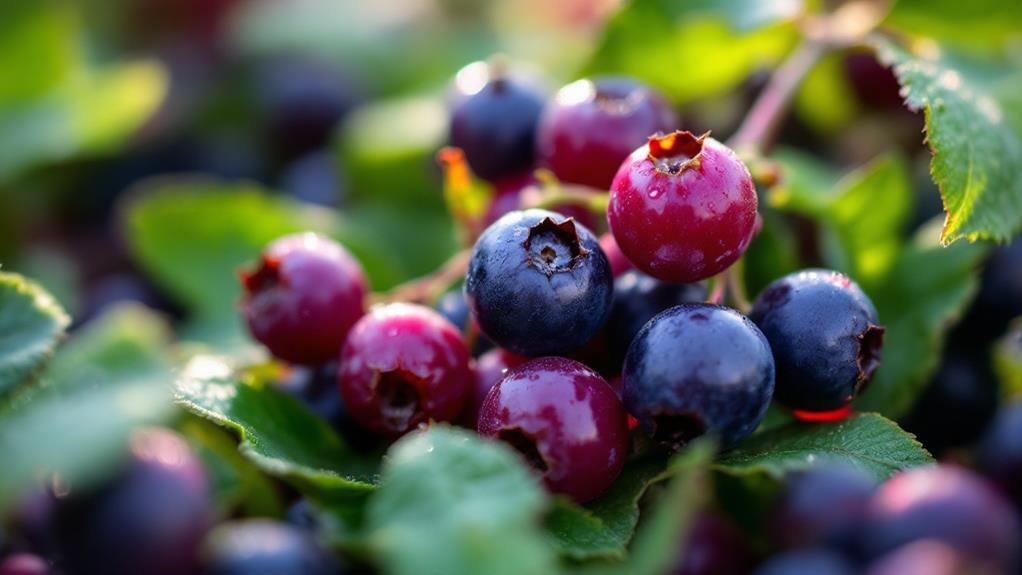The Ultimate Guide to Chickpeas: Health Benefits and Recipe Ideas
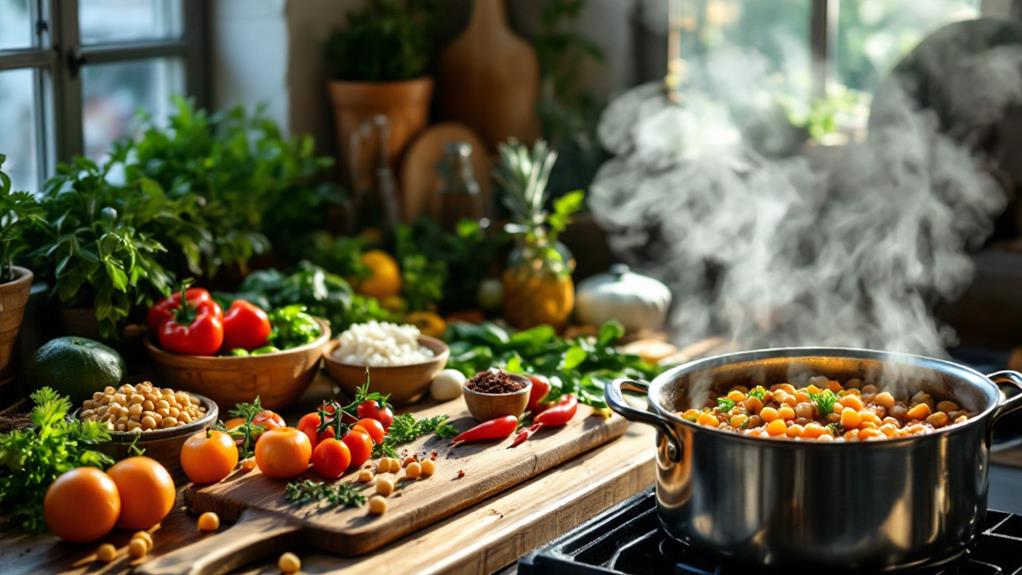
Chickpeas are a powerhouse of nutrition and culinary versatility, hailing from the Middle East and Mediterranean. You'll find two main types: the creamy Kabuli and the robust Desi. These legumes deliver a punch of fiber and protein, with 12.5 grams of fiber and 15 grams of protein per cup, supporting digestion and energy. They're low on the glycemic index and packed with iron and magnesium. Regardless of if you're roasting them for a crunchy snack or making a lively chickpea salad, their possibilities are endless. Curious about how to make chickpeas your kitchen hero? There's much more to uncover.
Chickpea Varieties and Origins
Chickpeas, those versatile legumes you've likely encountered in hummus or stews, have a rich history that spans over 9,000 years. Originating from the Middle East and Mediterranean regions, these legumes are now a staple across the globe. Known also as garbanzo beans, chickpeas belong to the Fabaceae family and are vital in diverse cuisines. You'll find two main varieties: Kabuli, which are larger, lighter, and creamier, often used in European and Middle Eastern dishes, and Desi, which are smaller, darker, and have thicker skins, predominately grown in India and East Africa.
India leads the global production of chickpeas, contributing to about 70% of the world's supply. This makes it a central hub for these legume plants, followed by countries like Australia, Pakistan, and the USA. Chickpeas also come in green varieties, which are tender and cook faster, adding versatility to your cooking. While "chickpea" stems from the Latin "cicer," "garbanzo" traces back to 18th-century Spain. Knowing these varieties and origins enriches your appreciation of their health benefits and culinary uses, making chickpeas a fundamental component of both traditional and modern dishes worldwide.
Nutritional Benefits
You'll be amazed at how nutritionally dense chickpeas are, making them a vital improvement to any diet. Packed with dietary fiber, they provide about 12.5 grams per cup of cooked chickpeas, helping with digestion and keeping you full longer. This is a great advantage if you're aiming to maintain or lose weight. In addition, with 15 grams of protein per cup, chickpeas are an excellent plant-based protein source, especially for vegetarians and vegans seeking to balance their diets.
Chickpeas are also beneficial for blood sugar management, thanks to their low glycemic index of 28. This makes them an ideal choice for those managing diabetes or looking to stabilize their blood sugar levels. Moreover, they're rich in vital vitamins and minerals like iron, magnesium, and folate, which support different bodily functions and general health.
Each half-cup serving of canned chickpeas contains roughly 160 calories, making them a nutritious supplement to your meals without overwhelming your calorie intake. By incorporating chickpeas into your diet, you're ensuring a more balanced diet that's not only nutritious but also satisfying and advantageous for your overall health.
Cooking Techniques
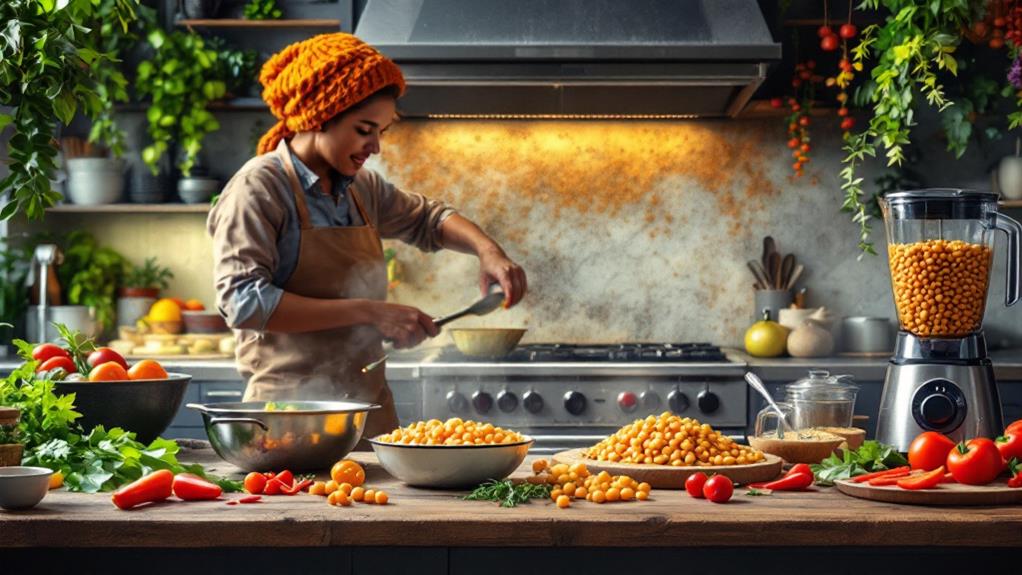
Mastering chickpea preparation can greatly improve your culinary repertoire. Start by soaking dried chickpeas for 8-12 hours. This simple step not only reduces cooking time but also makes them easier to digest. Once soaked, you can cook chickpeas on the stovetop in salted water for 1.5 to 2 hours. If you're short on time, consider using an Instant Pot. It speeds up the process, cooking chickpeas on high pressure in just about 20 minutes.
For hands-off preparation, a slow cooker is your friend. You can cook unsoaked chickpeas on high for 3-4 hours or on low for 6-8 hours. This method is perfect for meal prepping with minimal effort. If you need a faster option, canned chickpeas are incredibly convenient. Just rinse them to reduce sodium content before adding them to your dish.
If you're in the mood for a crunchy snack, try making roasted chickpeas. Toss cooked chickpeas with some oil and your favorite seasonings, then roast them in the oven at 400°F for 20-30 minutes, stirring occasionally. They make for a delicious, protein-packed treat you'll enjoy.
Storage Tips
Proper storage is key to maintaining the quality and longevity of chickpeas in your pantry. Start with dried chickpeas by placing them in an airtight container and storing them in a cool, dry place. They can last for 2-3 years, but for peak quality, use them within the initial year. For cooked chickpeas, they should be refrigerated in a sealed container for 3-5 days. If you want to store cooked chickpeas longer, opt for freezing them. Confirm they're spread in a single layer in a freezer-safe container to keep their texture intact, allowing them to last for 4-6 months.
When it comes to canned chickpeas, unopened cans can be stored for up to 3-5 years. Always check for quality by looking out for:
- Off smells
- Unusual tastes
- Signs of spoilage
- Dented or rusted cans
- Discoloration of the chickpeas
Proper storage not only prolongs the lifespan of your chickpeas but also guarantees you're getting the best flavor. Don't forget to rinse canned chickpeas before use to reduce sodium content. Pay attention to storage details, and enjoy your chickpeas at their finest.
Delicious Recipes
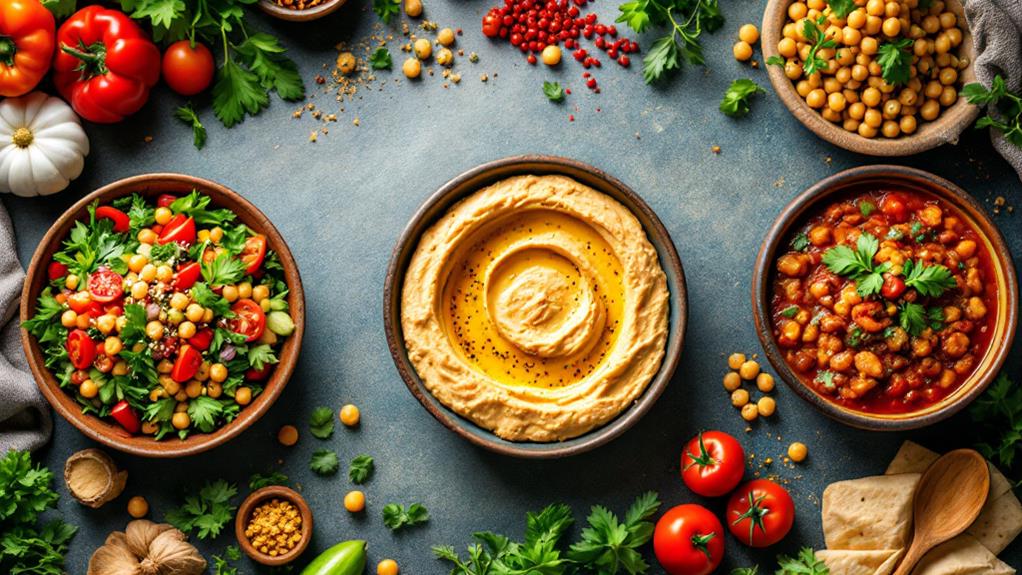
Chickpeas are incredibly versatile, offering a myriad of delicious recipes to examine. Start your day with a Chickpea & Kale Breakfast Skillet. This dish is not only high in protein and fiber, but it's also a nutritious way to kick off your morning. You'll love the combination of chickpeas and kale for a wholesome start. For a flavorful lunch, try the Curried Chickpea Salad. It combines the mild flavor of chickpeas with spices, providing a satisfying dish rich in vital vitamins and minerals.
Chickpea Tikka Masala is a must-try for those seeking a plant-based alternative to traditional meat dishes. The chickpeas are simmered in a creamy tomato sauce, delivering a hearty and delicious texture that's sure to please. If you're planning a brunch or a light dinner, consider making a Vegan Chickpea Hash. This recipe uses chickpeas as the star ingredient, offering a filling, protein-packed meal.
Lastly, don't miss out on Chickpea Stuffed Sweet Potatoes. This dish pairs the sweetness of the potatoes with savory, fiber-rich chickpeas, creating a wholesome and nutritious meal that boasts numerous health benefits. Examine these recipes and enjoy the versatility of chickpeas!

